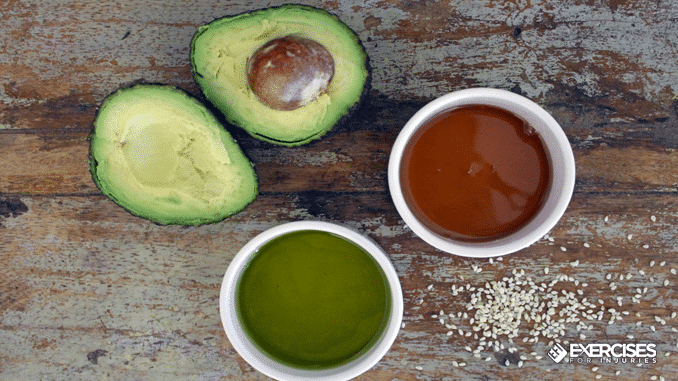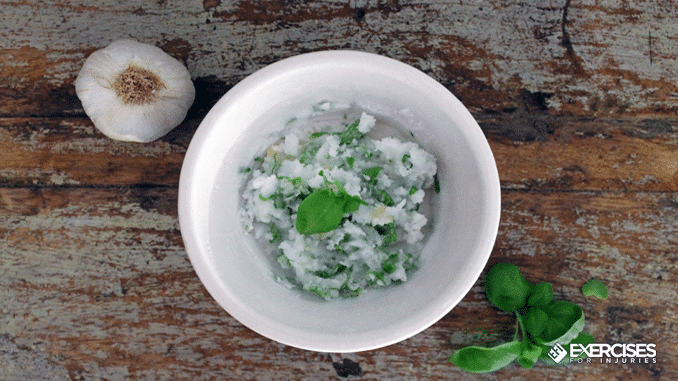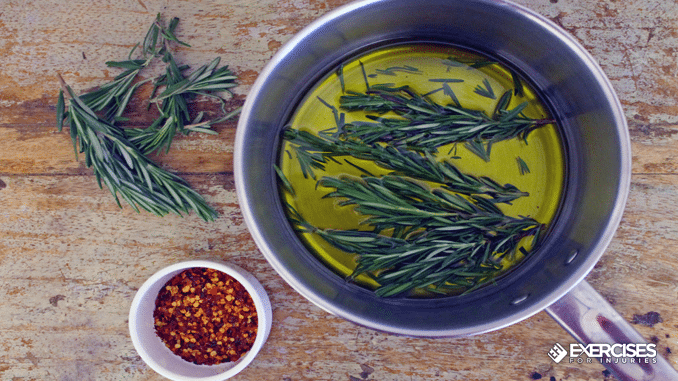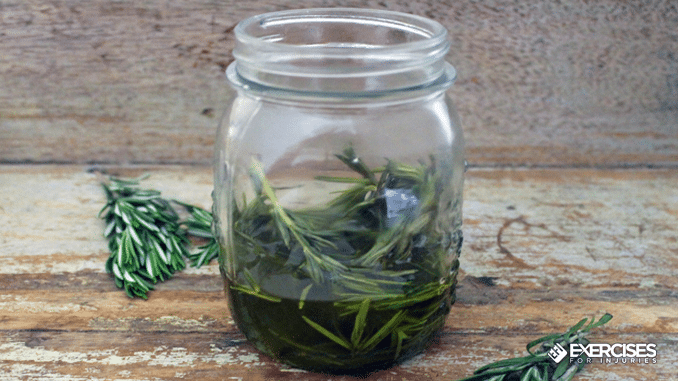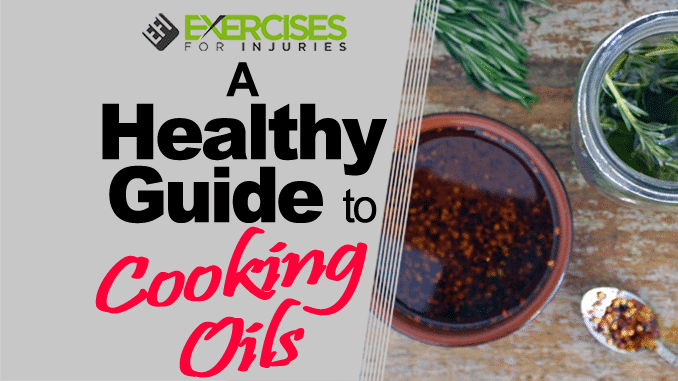
With a newfound understanding that fat does not make us fat, more of us are embracing a healthy balanced diet, rich in nourishing fats. Nowadays, it is widely accepted that adding an avocado to your lunch salad or a pastured egg to your breakfast can provide you with a nutrient-dense hit of essential fatty acids, but when considering how we use fats and oils for cooking, things become less clear.
With certain healthful oils being more heat stable than others, some of our “healthy” cooking fats are damaged during the cooking process rendering their nutritional value void.
This handy guide will break down some of the most popular and nutritious cooking oils, showing you how and when to use them to get the very most out of them both in terms of flavor and nutrition.
Coconut Oil
Phenomenally popular in all health-conscious diets, coconut oil is rich in fatty acids and healthy saturated fats. Coconut oil is readily digestible by the liver, meaning it does not get stored as fat within the body. It also exhibits antibacterial, anti-inflammatory and antifungal properties.
Good for: Frying, baking, smoothies and melted on cooked vegetables
Tips: Always look for organic, cold-pressed and raw coconut oil; coconut oil has a moderate smoke point (around 350 degrees Fahrenheit), making it ideal for baking and gently frying meats and vegetables
Olive Oil
Anti-inflammatory and loaded with antioxidants, extra-virgin olive oil is said to be a key contributor the super healthful and nutrient dense Mediterranean diet. With cancer-fighting qualities and heart-protective properties, high-quality extra-virgin olive oil should be a pantry staple.
Good for: Salad dressings, cooked vegetables and homemade hummus
Tips: With a relatively low smoke point (between 320F and 410F), exposure to high heat can have a damaging effect on the composition of olive oil, especially extra-virgin olive oil, which is at the lower end of the scale; reserve only for very low cooking temperatures and using cold over salads and cooked dishes
Avocado Oil
A relatively new player on the oil market, avocado oil is gaining popularity in health food circles. Touted to ease the symptoms of arthritis and lower blood pressure, avocado oil is a nutrient-dense fat that retains its benefits both when used cold and when exposed to higher cooking temperatures.
Good for: Frying, roasting and salad dressings
Tips: Avocado oil has a high smoke point (520F), making it ideal for more intensive cooking methods
Flaxseed Oil
Flaxseed oil is a rich, nutty-flavored fat, rich in omega-3s. It is an ideal addition to the diet for those who struggle to obtain omega-3 fats from other sources like fish or meat. With exceptional anti-inflammatory properties, flaxseed oil has been widely used in natural health circles as a potent cancer preventative.
Good for: Salad dressings, smoothies and cooked and raw vegetables
Tips: With an incredibly low smoke point (225F), flaxseed oil should be reserved only for salad dressings and drizzling over vegetables; quality of the oil is also key as flaxseed oil can become rancid easily once opened if not stored correctly; opt for cold-pressed organic flaxseed oil and store in a refrigerator away from direct sunlight once opened and consume within six weeks
Sesame Oil
Touted to lower inflammation, support cardiovascular health and encourage healthy hair and nails, sesame oil is a healthier alternative to processed vegetable oil when used in moderation. Traditionally used in Asian cooking, sesame oil brings a distinct, nutty taste to a dish and is loaded with vitamins and minerals.
Good for: Stir-frying and dressings
Tips: Sesame oil has a low smoke point (350F), so it is preferable as a dressing or low shallow frying; look for toasted sesame oil for dressing salads and overcooked meals; use lighter, heat pressed sesame oil for gently stir-frying meat and vegetables
Ghee (Clarified Butter)
Popular in paleo and ketogenic diets, ghee (also known as clarified butter) is loaded with fat-soluble minerals and essential fatty acids. The process of producing ghee is claimed to remove the majority or lactose and casein, leaving only trace amounts, making it tolerable to those with dairy sensitivities.
Good for: Baking, sauteing, frying, melting and with cooked vegetables
Tips: With a higher smoke point than butter 480F compared to 300F), ghee can tolerate higher cooking temperatures without damaging its nutritional composition; always look for pastured, organic ghee when possible
Hemp Seed Oil
Renowned for maintaining hair and nail health, hemp seed oil is a rich source of essential amino acids and contains smaller quantities of vitamins and minerals. Anti-inflammatory and rich in antioxidants, hemp seed oil is touted for its cancer preventative qualities.
Good for: Salad dressings, drizzling over cooked vegetables and light sauteing
Tips: With a relatively low smoke point (320F). Hemp seed oil is best used cold as a dressing; if using for cooking, use only for quick frying at low temperatures
Beef Tallow
Rich in antioxidants, vitamins and omega-3 fatty acids, beef tallow is a common addition to paleo recipes. It is also a rich source of conjugated linoleic acid (CLA), renowned for its cancer-fighting properties and brain protective qualities.
Good for: Frying, savory pastries and roasting
Tips: With a relatively high smoke point (400F), beef tallow can be exposed to more vigorous cooking methods; always opt for tallow from grass-fed beef when possible.
Make Your Own Infused Oils
A great way to add a little variety to your salad and cooking oils is to infuse them with your favorite herbs and spices.
A delicious dairy-free alternative to flavored butter, softened coconut oil can be blended with pressed garlic and your favorite fresh herbs for stuffing a chicken or putting onto cooked vegetables. Perfect with parsley, cilantro or basil, mash two tablespoons of softened coconut oil with a clove of pressed garlic and a tablespoon of chopped fresh herbs. Refrigerate until ready to use.
To add a little something different to your salad, why not try infusing extra-virgin olive oil with fresh herbs or spices? Fresh rosemary is ideal for adding an aromatic note to a simple salad, or consider crushed, dried chilies for a spicy kick. Simply add 3/4 of a cup of olive oil to a small saucepan over a very gentle heat and add five sprigs of rosemary or two tablespoons of red chili flakes. Heat gently for five minutes (do not boil or simmer), and then remove from the heat to cool completely and infuse for a minimum of one hour. Strain the oil into a sterile resealable jar.
Not only does the low cooking temperature allow you to retain the health properties of the oil, but the addition of herbs and spices brings an added nutrient hit!
For your guide to the best foods to heal your body, check out The Best Foods that Rapidly Slim & Heal in 7 Days, here!

